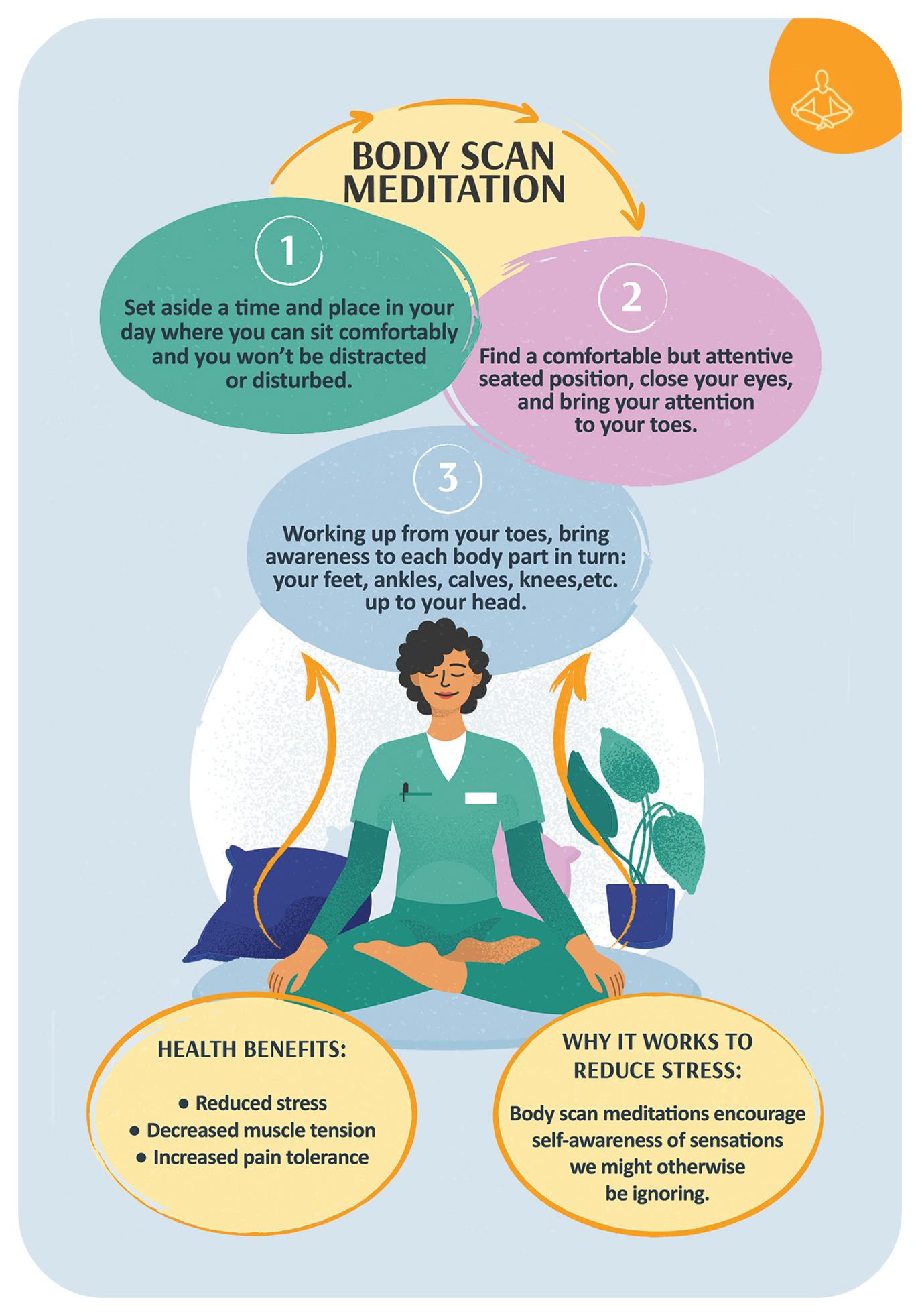As you step into the new year, you may be thinking about new ways to approach 2024. Studying your discipline is tough going, so building your mental resilience might be something you want to focus on this year.
What comes to mind when you think of the word 'resilience'? When you imagine a resilient person, what qualities and strengths do they possess? Here, positive psychologist and Mind Ninja, Mahrukh Khwaja, shares some evidence-based ways to train your brain to become more resilient.
For medical and dental students, resilience is an essential tool for navigating challenges and updating clinical skills. What’s more, it’s an important life skill.
Training our minds to become more resilient is essentially about tapping into psychological tools to overcome adversities, and to learn to recover and grow through them (Reivich and Shatté, 2002).
Far from the outdated 'bounce back' analogy, resilience is a journey. Instead of instantly bouncing back, the focus should be on a more compassionate discovery of our internal resources and seeking social support.
Benefits of resilience
The 'Tree of Life', located in the Olympic National Park in Washington, has forged roots that supply the tree, despite not having soil. This tree, and countless others, shows nature’s ability to adapt to different weather conditions – to bend with them, rather than to break.
Similarly, resilience requires us to think flexibly, to roll with the rough and the smooth. This dynamic process also involves a number of protective factors an individual has, such as family members, peers, and a community that allows us to develop, maintain and regain mental health despite adversity (Khwaja, 2023).
The benefits of these vital life skills are beginning to be seen in psychological intervention literature targeted at medical and dental students (Peng et al., 2014; Rosenzweig et al., 2003), such as:
- A greater ability to regulate emotions
- An enhanced ability to handle challenges and stress
- Reduced occupational hazards, such as burnout and compassion fatigue
- Reduced presenteeism and absenteeism
- Enhanced communication
- Improved interpersonal relationships
- Openness in upskilling and developing
- Greater ability to give and receive support
Resilience protective factors
We all sit on the mental health continuum. Our position on this continuum is always shifting according to what is going on in our lives, as well as the interplay of our risk and protective factors.
Doubling down on our protective factors for mental health and wellbeing can help shift us to greater levels of resilience, including:
- Self-awareness - This is the awareness of our thoughts and emotions at any given moment. We’re often more aware of our physical reaction to stress, and less aware of our thoughts. This is due to a disconnection between the mind and body.
- Self-regulation - Once we are self-aware, we’re then able to self-regulate. Self-regulation is another key protective factor. This skill includes recognising which thoughts or emotions may be helping or hindering us. Once we’ve done so, we can find strategies to change those thoughts and calm our physiology when our brain is in fight or flight mode.
- Positive emotions - These emotions include elevated feelings of love and happiness, as well as gratitude, optimism, self-compassion and curiosity.
- Self-efficacy - Self-efficacy relates to our ability to complete goals and master our environment. It impacts our choices, goal setting, effort and persistence. We know that individuals with more self-efficacy are more likely to achieve difficult goals and try again despite rejections.
- Positive relationships and organisations - Since human beings are hardwired for social connection, it’s unsurprising that our community also provides us protection from adversity. Nurturing positive relationships at university is essential when it comes to building both resilience and wellbeing.
- Meaning - Making meaning, despite obstacles, is all about engaging with something bigger than ourselves. We may find meaning through spirituality or reflection.
Training our brain for greater resilience
Here are some simple strategies to help you increase your levels of resilience today:
Lean into lifestyle factors - Level one starts with ensuring you’re focusing on a good foundation to positive health – nutrition, sleep and movement.
Check-in - In order to support ourselves and thrive, we need regular check-ins. We can do this through journaling, taking a walk or a mindful deep breath. Ask yourself: What is going on for me right now? What am I feeling? How are my thoughts forming?
Managing stress as a student - The stressors at university are high. What can you do to lower your stress? It could be through practising mindfulness meditation, physical exercise like yoga, or journaling.
When you’re with patients, you could try taking deep mindful breaths to trigger the parasympathetic nervous system and provide a buffer against cortisol. Try integrating these practices into a regular morning or evening routine.
The image below guides you through a body scan meditation. Alternatively, you can listen to the audio.
Identify your common thinking traps - Thinking traps are thought patterns that aren’t helpful for us. They are also known as cognitive distortions. You can identify them through journaling and noting down your thoughts during stressful times – for example, you may notice a catastrophising pattern when you’re carrying out a new procedure.
Instead of focusing on the negative cycle of events that could happen in that moment, take a breath, notice what is going on in your mind and remind yourself that you are not your thoughts. The simple act of labelling a thought can be very effective in reducing its negative impact on us.
Find activities that bring you into flow states - These are activities are where you ‘get in the zone’, lose track of time and feel fully absorbed simply for the pleasure it brings. Flow states are very good for our brain and associated with happiness (Seligman, 2002). Examples include teaching, cooking, writing, painting and playing a musical instrument.
Practise gratitude - This small habit can help remind us to spot all of the good things that make up our lives.
Savour your wins - The act of savouring your wins involves slowing down and reliving positive moments, and really feeling the range of emotions it elicits.
Strengthen positive relationships at university - For example, share gratitude with a fellow student who has helped you, carry out random acts of kindness or take part in society events to further increase your connection with the university community.
Use your strengths in new and exciting ways - Using our strengths allows us to use the qualities that we enjoy, and that come easily to us, to boost our happiness and wellbeing. Start with reflecting on your strengths and then consider small ways you can infuse these into student life.
Align your goals with your values to increase your levels of meaning - Research validates a strong correlation between meaning and resilience. Interestingly, higher levels of meaning are also strongly correlated with better mental health, self-esteem, self-acceptance and emotional regulation. It could also result in a lower risk of substance abuse and addiction.
Resilience is very much about how we learn not just to survive, but to thrive when we experience setbacks. This is a dynamic process and one in which we grow through our challenges. Experiment with a couple of the strategies above and notice how they make you feel.

Mind Flossing Toolkit (Khwaja, 2021)
References
Reivich, K., & Shatté, A. (2002). The resilience factor: 7 essential skills for overcoming life's inevitable obstacles.
Peng, L., Li, M., Zuo, X., Miao, Y., Chen, L., Yu, Y., ... & Wang, T. (2014). "Application of the Pennsylvania resilience training program on medical students." Personality and Individual Differences, 61, 47-51.
Seligman, M. E. (2002). Authentic happiness: Using the new positive psychology to realize your potential for lasting fulfillment. Simon and Schuster.
Rosenzweig, S., Reibel, D. K., Greeson, J. M., Brainard, G. C., & Hojat, M. (2003). "Mindfulness-based stress reduction lowers psychological distress in medical students." Teaching and learning in medicine, 15(2), 88-92.
Khwaja (2023). Resilience and Well-being for Dental Professionals, Edition 1. Wiley and Sons Ltd, pg 207-214.
Khwaja (2021). Mind Flossing Toolkit, Edition 1.

